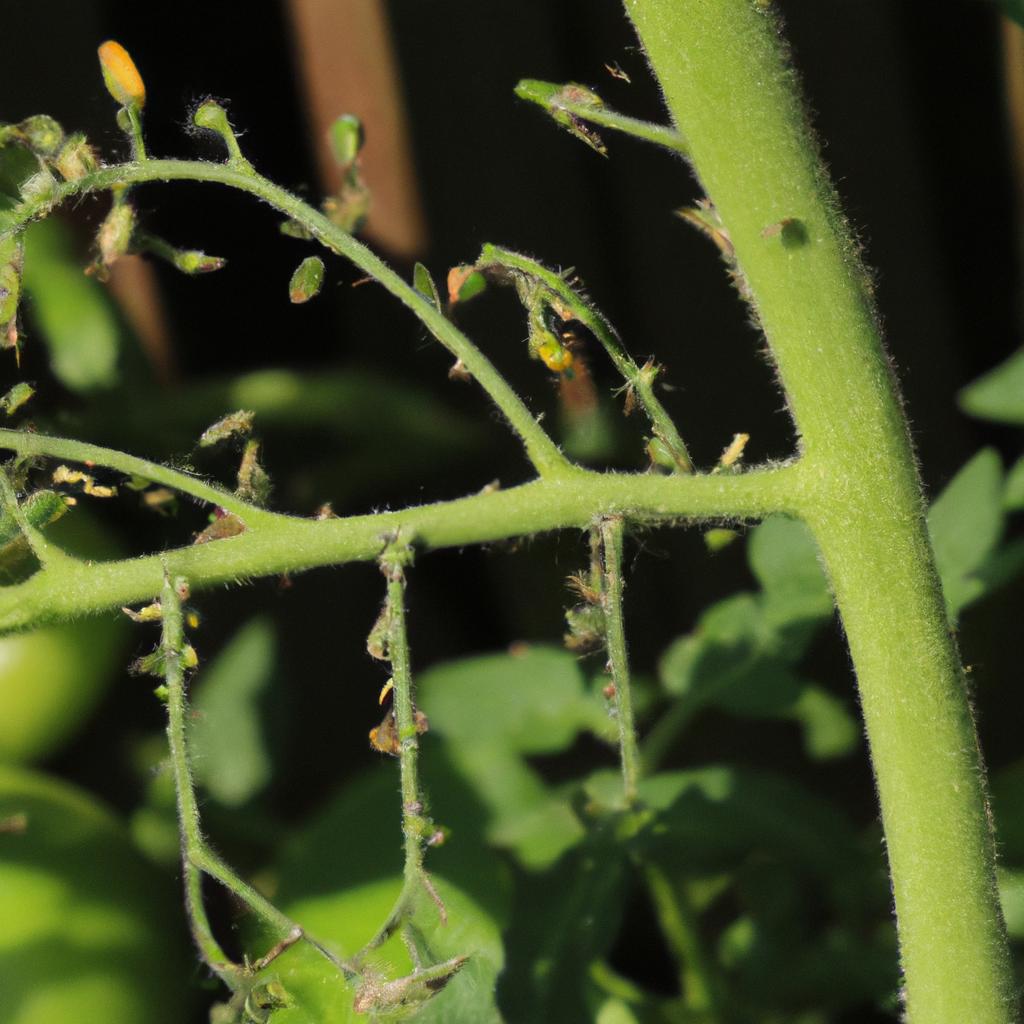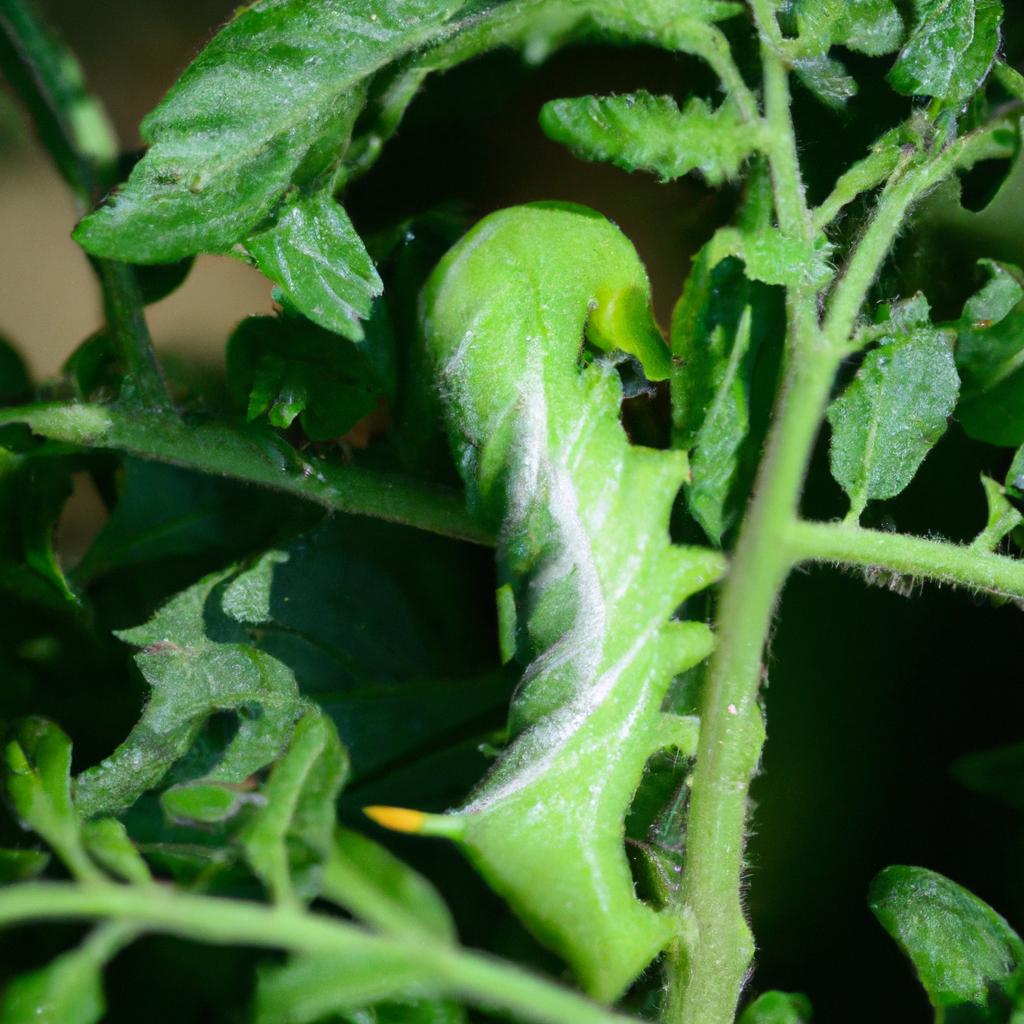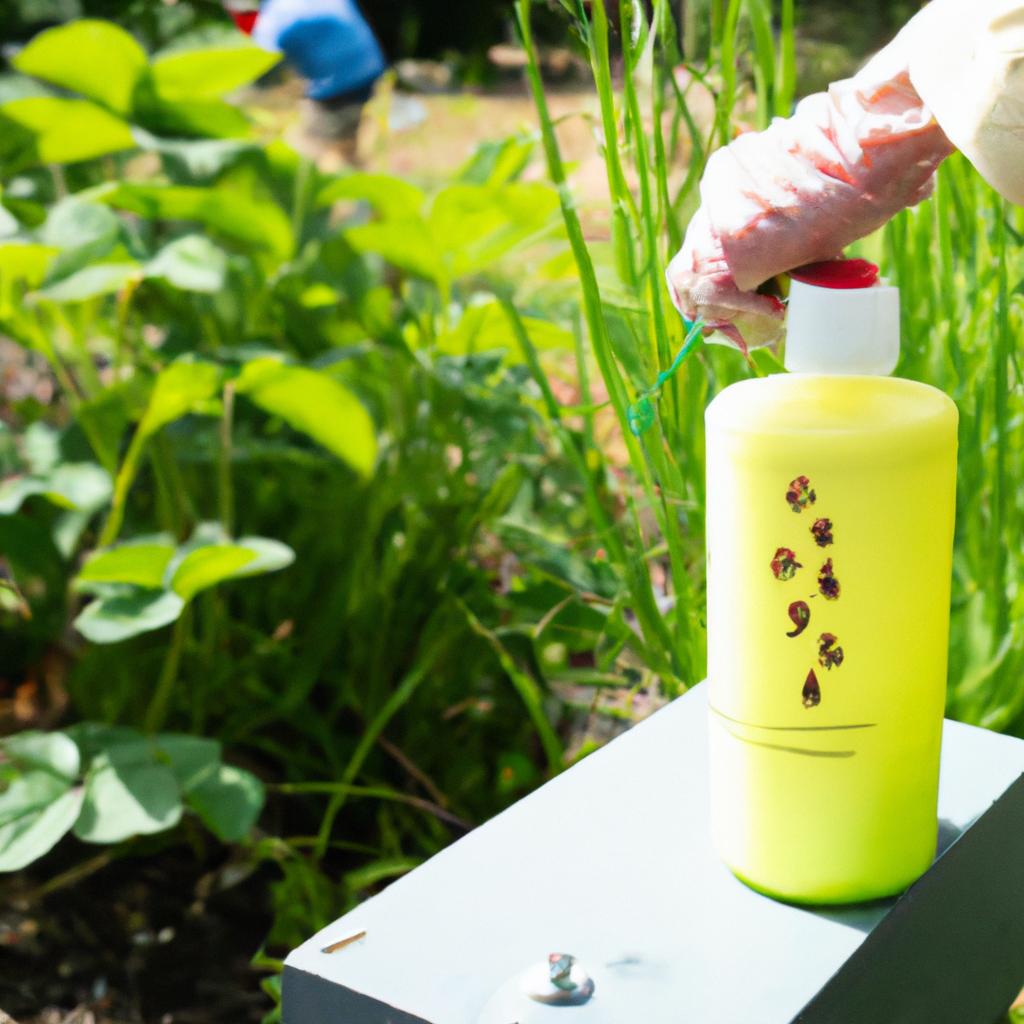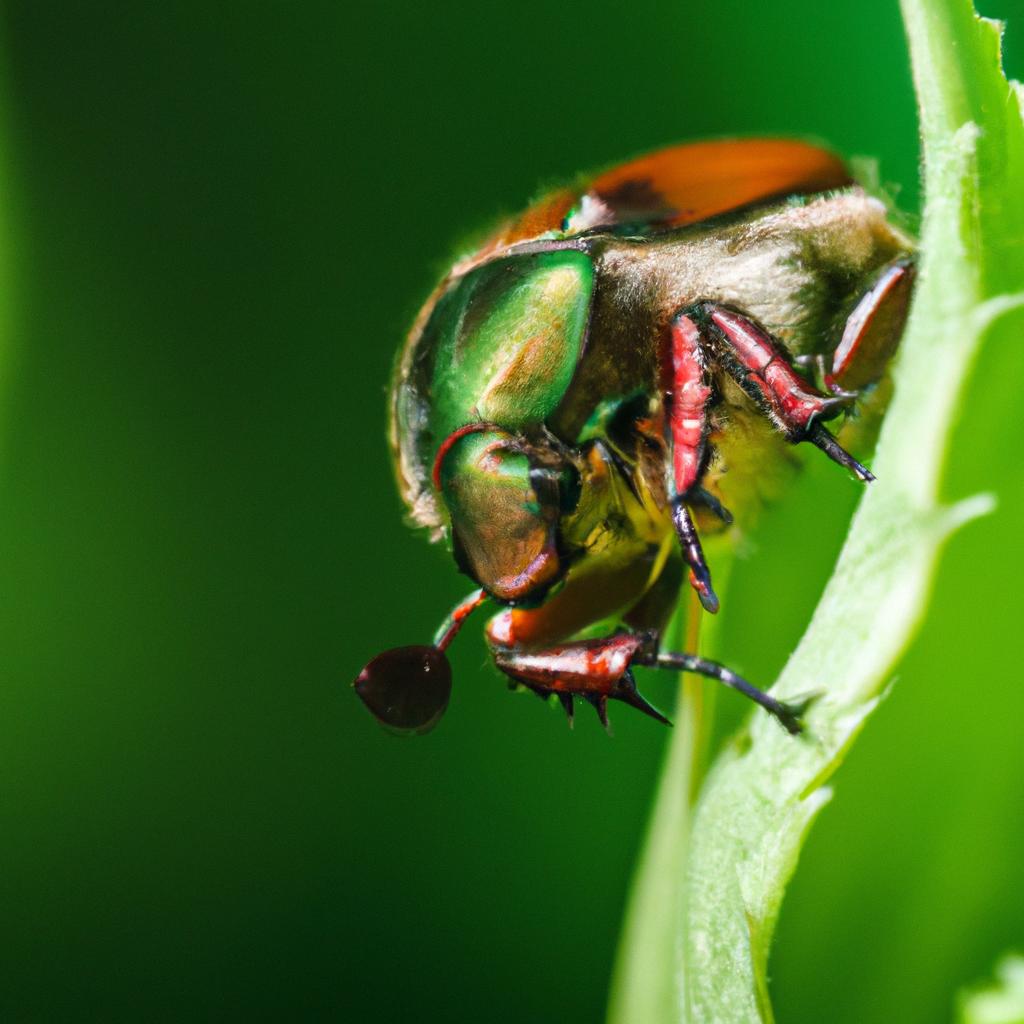Discover effective strategies for dealing with garden pests in Michigan. Learn how to identify common pests and maintain a pest-free garden.
When it comes to cultivating a vibrant and flourishing garden in Michigan, one of the key challenges that gardeners face is dealing with pesky garden pests. These tiny invaders can wreak havoc on your precious plants, causing damage and reducing their overall health and yield. But fear not! In this article, homegardenartful.com will guide you through the ins and outs of garden pests in Michigan, equipping you with the knowledge and techniques to maintain a pest-free haven for your beloved plants.
Why is it Crucial to Maintain a Pest-Free Garden in Michigan?

As garden enthusiasts, we invest our time, effort, and love into nurturing our green spaces. But imagine the frustration of seeing your hard work go to waste as garden pests ravage your plants. Not only do these unwelcome visitors cause unsightly damage, but they can also lead to the decline of plant health and productivity. By taking preventative measures and implementing effective pest control strategies, you can safeguard your garden’s vitality and ensure bountiful harvests.
A Brief Overview of Common Garden Pests in Michigan

Michigan’s unique climate and ecosystem provide a suitable habitat for various garden pests. From the notorious Japanese beetles to sneaky aphids and tomato hornworms, these pests can disrupt the natural balance of your garden. Understanding their behavior, identifying their presence, and learning how to combat them are essential steps in maintaining a thriving garden.
Are you ready to arm yourself with the knowledge needed to combat these garden invaders? In the upcoming sections, we’ll delve into the specifics of common garden pests in Michigan, explore preventative and control measures, and discover natural remedies that will help you reclaim your garden’s serenity. So, let’s dive in and learn how to keep those pests at bay!
Stay tuned for Section II, where we’ll explore the various garden pests that plague Michigan and how to identify them.
Understanding Garden Pests in Michigan

Identifying Common Garden Pests in the Region
Before we embark on our mission to combat garden pests in Michigan, it’s crucial to know who we’re up against. Let’s take a closer look at some of the most common culprits you may encounter in your garden:
Japanese Beetles
These metallic green beetles with copper-colored wings are a notorious garden menace in Michigan. They feast on the foliage of a wide range of plants, leaving behind skeletonized leaves. Keep an eye out for their distinctive feeding patterns and clusters on your plants.
Aphids
These tiny, soft-bodied insects may be small, but their impact can be significant. Aphids multiply rapidly, sucking sap from plant tissues and causing stunted growth and distorted leaves. Look for clusters of these pear-shaped pests, often found on the undersides of leaves.
Tomato Hornworms
If you grow tomatoes in your Michigan garden, you’ve likely encountered these large green caterpillars with white stripes. Tomato hornworms can devour tomato leaves and even the fruits themselves. Keep an eye out for their telltale presence, as they blend in remarkably well with the foliage.
Impact of Garden Pests on Plant Health and Yield
Garden pests in Michigan can wreak havoc on your plants, leading to a range of negative consequences for their health and productivity. Here are some ways these pests can impact your garden:
- Reduced plant vigor: Pests drain vital nutrients from plants, weakening their overall health and making them more susceptible to diseases.
- Decreased yield: As pests munch on leaves, flowers, and fruits, they compromise the plant’s ability to produce a bountiful harvest.
- Disease transmission: Some garden pests act as vectors for various plant diseases, spreading them from one plant to another and causing widespread damage.
By understanding the identification and impact of garden pests in Michigan, you’ll be better equipped to tackle these challenges head-on. In the next section, we’ll explore effective prevention and control measures to help you maintain a pest-free garden sanctuary. Stay tuned!
Stay tuned for Section III, where we’ll uncover prevention and control measures to combat garden pests in Michigan.
Prevention and Control Measures
Gardening in Michigan requires a proactive approach when it comes to pest control. By implementing effective prevention and control measures, you can safeguard your garden from the relentless onslaught of pests. Let’s explore some strategies that will help you maintain a pest-free oasis for your plants.
Implementing Organic Pest Control Practices in Michigan Gardens
Embracing organic pest control practices not only protects your plants but also promotes a healthier and more sustainable environment. Here are a few techniques to consider:
- Companion Planting: Take advantage of nature’s allies by strategically planting pest-repellent companions near vulnerable plants. For example, marigolds emit a scent that repels aphids, while basil deters mosquitoes.
- Crop Rotation: Rotate your crops each season to prevent the buildup of pest populations. This disrupts their life cycles and reduces the risk of infestations.
- Mulching: Apply organic mulch around your plants to deter pests and conserve moisture. Mulch acts as a barrier, making it harder for pests to reach your plants.
Cultural Methods to Deter Garden Pests
In addition to organic practices, cultural methods play a vital role in deterring garden pests. Consider incorporating these techniques into your gardening routine:
- Sanitation: Regularly remove fallen leaves, weeds, and decaying plant matter from your garden. This eliminates potential hiding spots and breeding grounds for pests.
- Proper Watering: Water your plants at the base rather than overhead to minimize excess moisture that attracts pests like slugs and snails.
- Soil Health: Maintain healthy soil by adding compost and organic matter. Nutrient-rich soil promotes strong plant growth, making them more resistant to pests.
Effective Use of Natural Predators for Pest Management
Nature provides us with an army of beneficial insects that can help keep garden pests in check. Consider attracting these natural predators to your garden:
- Ladybugs: These voracious eaters feast on aphids, mites, and other soft-bodied pests. You can attract them by planting flowers such as daisies and fennel.
- Praying Mantises: These stealthy hunters prey on a wide range of garden pests, including beetles, caterpillars, and grasshoppers. Providing them with shrubs and tall grasses offers a conducive habitat.
Remember, a combination of prevention and control measures is key to maintaining a pest-free garden in Michigan. By embracing organic practices, implementing cultural methods, and attracting natural predators, you can strike a balance between pest management and a thriving garden ecosystem.
Stay tuned for Section IV, where we’ll delve into the world of popular garden pests in Michigan and learn how to identify and manage them effectively.
Section IV: Popular Garden Pests in Michigan
Japanese Beetles: Identification, Behavior, and Control Measures
Japanese beetles are a notorious pest that can wreak havoc on your garden. These metallic green beetles with coppery wings are known for their voracious appetite, devouring the foliage of a wide range of plants. To identify these pests, keep an eye out for their distinctive coloration and their characteristic damage, which appears as skeletonized leaves.
When it comes to combatting Japanese beetles, prevention is key. Consider using physical barriers, like floating row covers, to protect susceptible plants. Additionally, handpicking the beetles or using a soap-water spray can help reduce their population. For severe infestations, organic insecticides containing neem oil or pyrethrin can be effective in controlling these garden intruders.
Aphids: Characteristics, Damage Caused, and Prevention Methods
Aphids, those tiny sap-sucking insects, can quickly multiply and damage your plants. These soft-bodied pests come in a variety of colors, such as green, black, or brown. They tend to cluster on the undersides of leaves and stems, causing distorted growth and the formation of sticky honeydew.
To prevent aphid infestations, encourage natural predators like ladybugs and lacewings to inhabit your garden. Additionally, regularly inspect your plants and promptly remove any affected leaves or stems. Another effective method is to use a strong stream of water to dislodge aphids from your plants.
Tomato Hornworms: Overview, Identification, and Management Techniques
Tomato hornworms are a common culprit when it comes to defoliation of tomato plants. These large, green caterpillars with distinctive horn-like appendages can quickly strip your tomato plants of their leaves. To identify them, look for their characteristic green coloration and the presence of dark spots along their bodies.
One way to manage tomato hornworms is to handpick them off your plants, but be sure to wear gloves as they can deliver a painful sting. Alternatively, you can introduce natural predators like braconid wasps or use organic insecticides containing Bacillus thuringiensis (Bt) to control their population.
Keep reading to discover natural remedies for garden pest control in Michigan in Section V.
Natural Remedies for Garden Pest Control in Michigan
When it comes to dealing with garden pests in Michigan, there are several effective and eco-friendly solutions at your disposal. Embracing natural remedies not only helps protect the environment but also ensures the health and safety of your plants. Let’s explore some tried and tested methods that will help you combat garden pests without relying on harmful chemicals.
DIY Pest Control Solutions Using Common Household Items
You’ll be amazed at how many items you already have in your pantry that can serve as effective pest control solutions. For instance, a simple mixture of dish soap and water can be sprayed on plants to deter aphids and other soft-bodied pests. Neem oil, derived from the neem tree, is another fantastic natural remedy that acts as an insect repellent and disrupts the pests’ life cycle. Garlic and chili pepper sprays are also known to repel many pests and can be easily concocted at home.
Using Organic Insecticides for Garden Pest Management
If the DIY approach isn’t your cup of tea, don’t worry! There are organic insecticides available that can help you combat garden pests effectively. Look for products that are certified organic and contain naturally derived ingredients. These insecticides target specific pests while minimizing harm to beneficial insects and the environment. Remember to always follow the instructions provided and apply the insecticides during the recommended times to ensure maximum effectiveness.
Companion Planting Techniques to Repel Garden Pests
Nature has its own way of balancing ecosystems, and companion planting is a technique that harnesses this natural harmony to deter garden pests. By strategically planting certain flowers, herbs, and vegetables alongside your main crops, you can create a garden environment that repels pests. For example, marigolds are known to repel nematodes, while basil can deter flies and mosquitoes. Additionally, planting aromatic herbs like lavender and rosemary can confuse and repel many common pests.
By incorporating these natural remedies into your gardening routine, you can effectively manage garden pests in Michigan without resorting to harsh chemicals. Remember to experiment, observe, and adjust your strategies as needed to find the best solutions for your specific garden. With a little creativity and a touch of nature’s wisdom, you’ll be well on your way to maintaining a thriving, pest-free garden.
Stay tuned for Section VI, where we’ll conclude our exploration of garden pests in Michigan and emphasize the importance of sustainable practices.
Conclusion
In conclusion, maintaining a pest-free garden in Michigan is crucial for the health and vitality of your plants. By understanding the common garden pests that inhabit the region and implementing effective prevention and control measures, you can ensure your garden thrives and yields bountiful harvests.
Remember, early intervention and regular monitoring are key to managing garden pests successfully. Embrace sustainable and eco-friendly practices to protect your plants and the environment. Incorporating natural remedies, such as DIY pest control solutions and companion planting techniques, can provide effective alternatives to harmful chemicals.
At homegardenArtful.com, we are committed to helping you create and maintain a beautiful and thriving garden. Explore our comprehensive resources on garden pest management and discover expert tips and advice to keep your garden pest-free.
So, don’t let garden pests ruin your gardening experience in Michigan. Take proactive steps to protect your plants, and enjoy the rewards of a vibrant and flourishing garden. Remember, the battle against garden pests can be won with knowledge, perseverance, and a touch of creativity.
Join us at homegardenArtful.com in our mission to create stunning gardens that are free from the clutches of garden pests. Together, let’s cultivate a harmonious and fruitful outdoor sanctuary!


